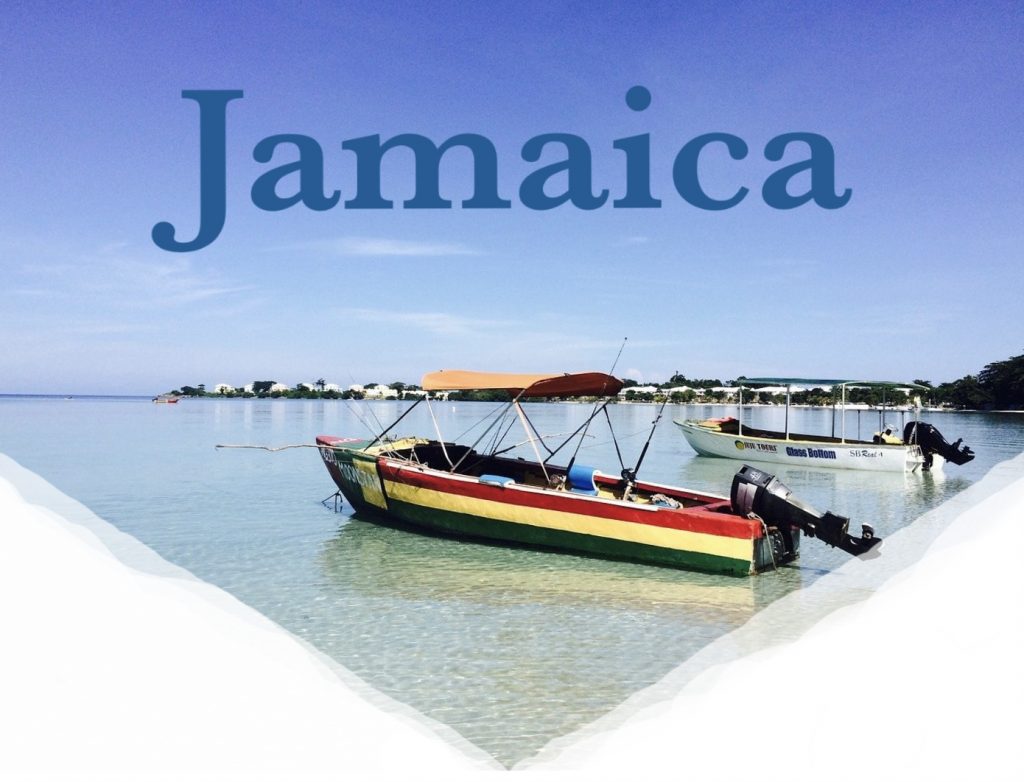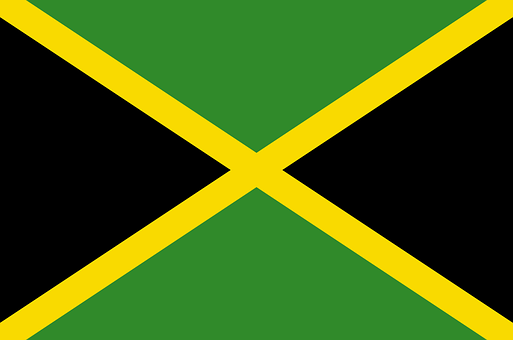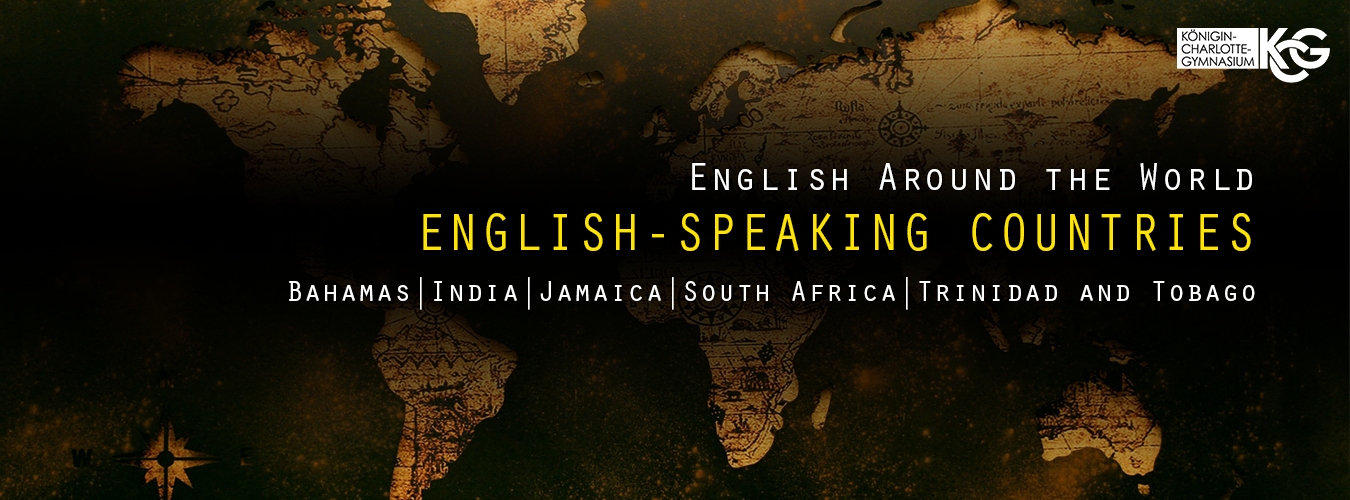
Content
- General information
- Culture
- History
- Ethnic Groups
- Conflicts in society
- Political system


In 2020, Jamaica had about 2,961 million inhabitants, which makes it the third most populous anglophone country in the Americas. It is also the largest island in the Caribbean with an area of 10,991 km2 of which about 1,5% is water. Jamaica has two cities of which the larger one, Kingstone, is it’s capital while Montegobay is rather coined by tourism. The Jamaican Dollar used as the population’s official currency is worth a lot less than the US dollar as one JMD equals only about 0.0064 USD. Often we hear the Jamaican climate being described as tropical, hot and humid but only few know about the danger which the country’s positioning in the hurricane belt of the Atlantic Ocean brings about. The frequent storms lead to damage in infrastructure, residential areas and sometimes the diverse ecosystem blooming with a rich variety of flora and fauna.

When thinking of the Caribbean country, the first thing that comes to mind is often their exotic, bold and unique culture. But the extent of variety behind it, is only known to few.
The Jamaican linguistic style might be the most peculiar aspect of their culture. While the official language is English, the are various dialects formed by combining English, Spanish and African phrases. These variations can differ from village to village. Diversity is being carried on into the culinary part of the Caribbean civilization. Jamaica is known for a wide range in spice and is specifically specialized in fiery and dishes like jerk chicken, cow foot stew or goats head soup. Looking for a culinary impulse? This link will lead you to 10 amazing Jamaican dishes.
The probably best known segment though, is the wide music range which in the past held great global power. I’m sure you’re familiar with Bob Marley but his Raggae isn’t the only famous genre – there’s Dancehall, Dub, Mento, Ska and Rocksteady, only to name a few. If you’re interested in listening to some of those genres, we linked some Spotify playlists for easy access.
The Jamaican culture is strongly coined by the importance of family and Religion. While the most represented Religion is Christianity, even this part of Jamaica teems from variety. There are Anglicans, Catholics, Baptists Presbyterians, Methodists and Seven Day Adventists but also multiple other Religions like Jews, Hindus, Muslims and Rastafarians.
What do you know about Jamaican traditions?

Indigenous People
Discovery of Jamaica
The English Attack
Pirates in Jamaica
Maroon Wars
Slavery
Political Systems
Independence
Test Your Knowledge on Jamaican History

“The famous birthplace of Bob Marley, reggae and the Rastafari movement […]”
-World travel guide
Germany and Jamaica are unfortunately separated by about 8.290 km, which automatically causes a geographical and socio-cultural distance. When thinking of Jamaica, certain stereotypes might come to one’s mind. Considering the fact that Jamaica’s current situation is only ever mentioned in movies, social media or in the news (should it be either extremely interesting and mind blowing or serve our entertainment), we don’t really have an extensive understanding of Jamaica’s true culture and their conflicts. As mentioned in the quote above, the most known stereotypes regarding Jamaica are: Knowing Bob Marley, listening to reggae and being part of the Rastafari movement. Other stereotypes that are also oftenly represented in movies and series are the excessive consumption of weed and living near the beach.
Just like every other country in the world, Jamaica struggles with social issues. Serious and hazardous issues have been present in the life of many children for most of their life already. In general, it is safe to say that Jamaica’s crime rate is something that presents a harmful problem to society. The term “crime rate“ refers to various kinds of crimes such as rape, theft, assault and homocide. Many Jamaican children, especially young girls suffer from sexual exploitation by older men. In fact, one in two girls is said to have been forced in some kind of sexual relationship, sometimes even with their own father. In addition to that, many children don’t have a choice but to prostitute themselves. Since the Jamaican population and children as well suffer from poverty, some kids of only ten years of age can be found in the streets, offering sexual service for money or even food. because of this, many women suffer from HIV. To illustrate, here is a pie chart showing the percentage of individual crimes making up majority of the crimes committed in Jamaica:

Restricted access to education, unemployment and poverty seem to form a never ending cycle for Jamaicans. Since any level of education besides primary school requires the payment of a fee, many children living in less wealthier conditions are not able to access any further education and therefore achieve educational success. Thus, it is harder to secure themselves in the labour market. Since certain necessary qualities and expectations cannot be met, even the part of population actively seeking lemployment struggle with rejection by employers continuously.

Jamaica‘s System of Government is a constitutional monarchy with the Queen as head of state, who is represented by the Governor-General. Since the power is divided, there are three arms of government: legislature, executive, judiciary.
Executive:
The exevutive is composed of the Prime Minister and the members of cabinet.The Prime Minister presides over the cabinet, whose members are selected by the Governor-General from members of the Parliament and Senate and guide government policy. Each of the 11 members of Cabinet are assigned one core area, like traffic, education, etc., through which the policies are implemented. Furthermore, the Attorney General, a Cabinet appointment, advises the Government on legal matters.
Legislature:
The legislature is composed of the Monarch, a nominated Senate and an elected House of Representatives. The Senate, often referred to as “Upper House” consists of 13 members, that are elected by the Prime Minister, and another eight members, that are elected by the leader of the opposition. The Senate reviews bills passed by the Lower House. The House of Representatives is often referred to as “Lower House” and consists of elected officials representing the 63 constituencies. The House of Representatives changes existing and enacts new laws and gets reports from the Auditor General.
Judiciary:
The administration of justice is carried out through a network of courts, the main ones being: the Court of Appeal, the Supreme Court and the R.M. Courts. The Court of Appeal consists of a Chief Justice and six other judges. When a person is not satisfied with the ruling of another court they can appeal to this one. The Supreme Court hears serious, civil and criminal matters, while the Resident Magistrates’ Courts (short: R.M. Courts) work at a parish level. Furthermore, there are other special courts, such as Family or Traffic Courts.
Sources:
General Information:
https://en.wikipedia.org/wiki/Jamaica (last accessed: 19/12/2021)
Culture:
https://weddedwonderland.com/6-jamaican-wedding-traditions-you-might-not-know-about/ (last accessed: 19/12/2021)
https://www.sandals.com/blog/jamaican-culture-and-traditions/ (last accessed: 19/12/2021)
History:
https://jis.gov.jm/information/jamaican-history/ (last accessed: 19/12/2021)
https://www.visitjamaica.com/feel-the-vibe/history/ (last accessed: 19/12/2021)
https://www.blackhistorymonth.org.uk/article/section/jamaica/history-of-jamaica/ (last accessed: 19/12/2021)
https://www.nationsonline.org/oneworld/History/Jamaica-history.htm (last accessed: 19/12/2021)
Political System:
https://jis.gov.jm/features/overview-government-jamaica/ (last accessed: 19/12/2021)
Conflicts in Society:
https://www.my-island-jamaica.com/what-are-some-social-issues-in-jamaica.html (last accessed: 17/12/2021)
https://www.humanium.org/en/jamaica/ (last accessed: 17/12/2021)
